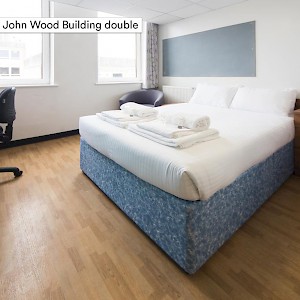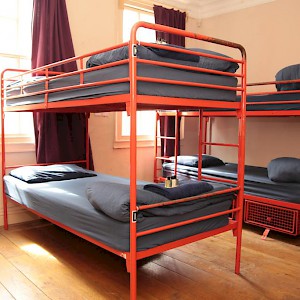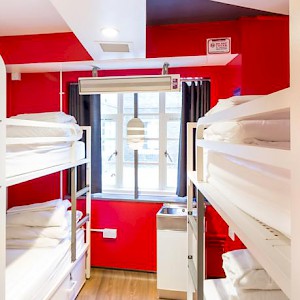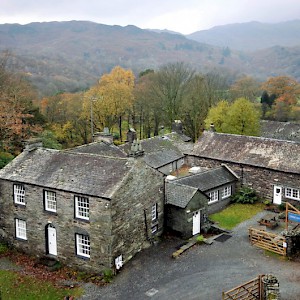Hostels in Bath ★☆☆
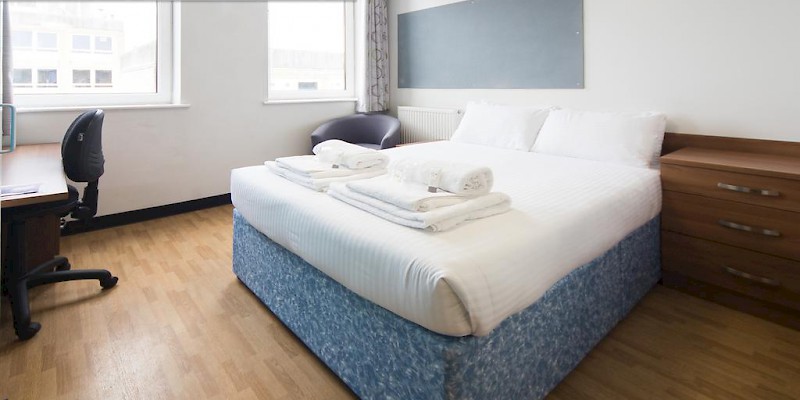
Hostels and other fun, cheap shared dorm lodgings in Bath from £10 ($15) per person
There is one very good reason to consider the hostels of Bath: They cost around £10–£33 ($15–€48) per person—though most fall into the £16–£22 ($23–$33) range. There is much more on what hostels are like in the "Tips" section below, but first let's get right to how to find a hostel in Bath.
Favorite hostels in Bath
- Booking.com - Booking.com lists more than 350 hostels across the U.K., with nearly 100 in London alone, complete with verified user reviews.Partner
- Hostelz.com - An aggregator shows you the rates its can find at multiple booking engines at once, so you can find the lowest price out there on hostels and other cheap accommodations.Partner
- Independenthostels.co.uk - A guide to about 400 hostels, bunkhouses, and camping barns all across Great Britain, including England, Scotland, and Wales. It is much stronger in the countryside, towns, and smaller cities than in London (which is pretty much ignores, weighing in with less than half a dozen).
- Yha.org.uk - The official hostelling site, linking to all 158 official YHA hostels and bunkhouses in the U.K. This does mean, however, it ignores the many, many excellent private hostels.
Tips
In most hostels, you sleep in a bunk bed in a shared dorm room (some sex-segregated; others mixed).
That said, virtually no hostels these days are of the old-school variety: 30 cots in a large room with a single large bathroom down the hall shared by the entire floor.
Most modern hostels have rooms with only 6 to 8 beds in them (up to a max of 10 or 12 in some). Sometimes each room even has its own attached bathroom; at others, you do share baths down the hall.
Some rooms have TVs (though I view that as a drawback: what if you want to go to sleep early but another resident wants to blare a reality show at 11pm?).
Most hostels have rooms of varying sizes, and offer sliding scale of rates: the more beds per room, the cheaper it is to stay.
Since these rooms are shared with strangers, hostels also provide lockers for guest use.
Increasingly, hostels provide all bedding, including sheets (in the old days, they'd just give you a blanket), but it still behooves you to bring your own sleep sack (kind of like a thin sleeping bag made out of a sheet). Note: Do not bring your own sleeping bag. Many hostels have a rule against using them—and for a very good reason. (Two words: bed bugs.)
Plenty of hostels also offer private accommodationssleeping 2–4 people (with or without attached private bathroom) at rates competitive with cheap hotels—an excellent choice for families.
Aside from the sleeping arrangements (detailed above), hostels are defined by their backpackers-of-the-world-unite atmosphere.
Most hostels have a friendly, laid-back, budgeteers-on-vacation vibe. They are places for the young and young-at-heart to live and travel in a college student kind of way.
There are playful murals on the walls or retro-chic lounges for cocktails, TV rooms, tour desks and games rooms with Foosball and billiards tables, restaurants (ranging from bland cafeteria to cheap ethnic) and communal kitchens where newly-minted friends can pool ingredients to whip up a spaghetti dinner.
There are usually computer temrinals for Skyping home and booking your next hostel down the road. Nearly all have WiFi—some free; others at a cost of £2 to £5 per day.
Many have pubs (which can be great fun—unless you want to go to bed early, at which point they become annoyingly noisy).
Some hostels host theme nights, from dance lessons to DJs, movie nights to karaoke.
There is cheap laundry service or D.I.Y. machines, vending machines, ATMs, and library shelves where travelers can swap books.
You get a bed—usually a bunk bed— in a shared dorm, though, again, private rooms are usually also available.
The cheapest hostels are on an a la carte model, chargeing extra for every little thing, including WiFi (£1-£4) and breakfast.
Other hostels throw in the WiFi and breakfast for free. Some even have amenties like free soft drinks, salsa lessons, and other perks.
Money. Hostels are cheap.
Traveling solo, a hostel offers a great savings over the cost of a single room at a hotel.
Even for two people traveling together, you can often stay at a hostel for £20–£55 total, making it chepaer than most hotels.
Also, some folks simply like the backpacker vibe, laid-back comaraderie, and mingling of travelers that a hostel provides. It can be as much a lifestyle and community choice as a lodging one.
Thankfully, most of the old, draconian hostel rules have since faded into bitter memories.
Mostly gone are the evening curfews and midday lockout periods. Some still do put a limit on how long you can stay (often no more than three days).
Here are three of the biggest downsides to hostels:
- Noise in your room: Just imagine sleeping in a room with 5–11 other people and all the noises that can emanate from that many snoring (and remarkably flatulent) bodies tossing and turning on squeaky cots.
- Noise in the building: Hostelers tend to skew younger, with all the benefits and drawbacks that entails. Even if there is no on-site pub, the noise of late-night revelers returning at all hours and carrying on their raucous conversations in the hallways can make sleep difficult.
- The insular nature of many hostelers: If you truly came to see the local country and meet its people, that ain't gonna happen if you always hang out with groups of Americans studying abroad, Australians on a gap year before college, and party-hearty German twenty-somethings. Many hostels end up feeling more like international pick-up scenes than in-country cultural experiences. You can ignore all that, of course, if all you are in search of is a cheap bed, but it can get annoying.
» More about Hostels in England

